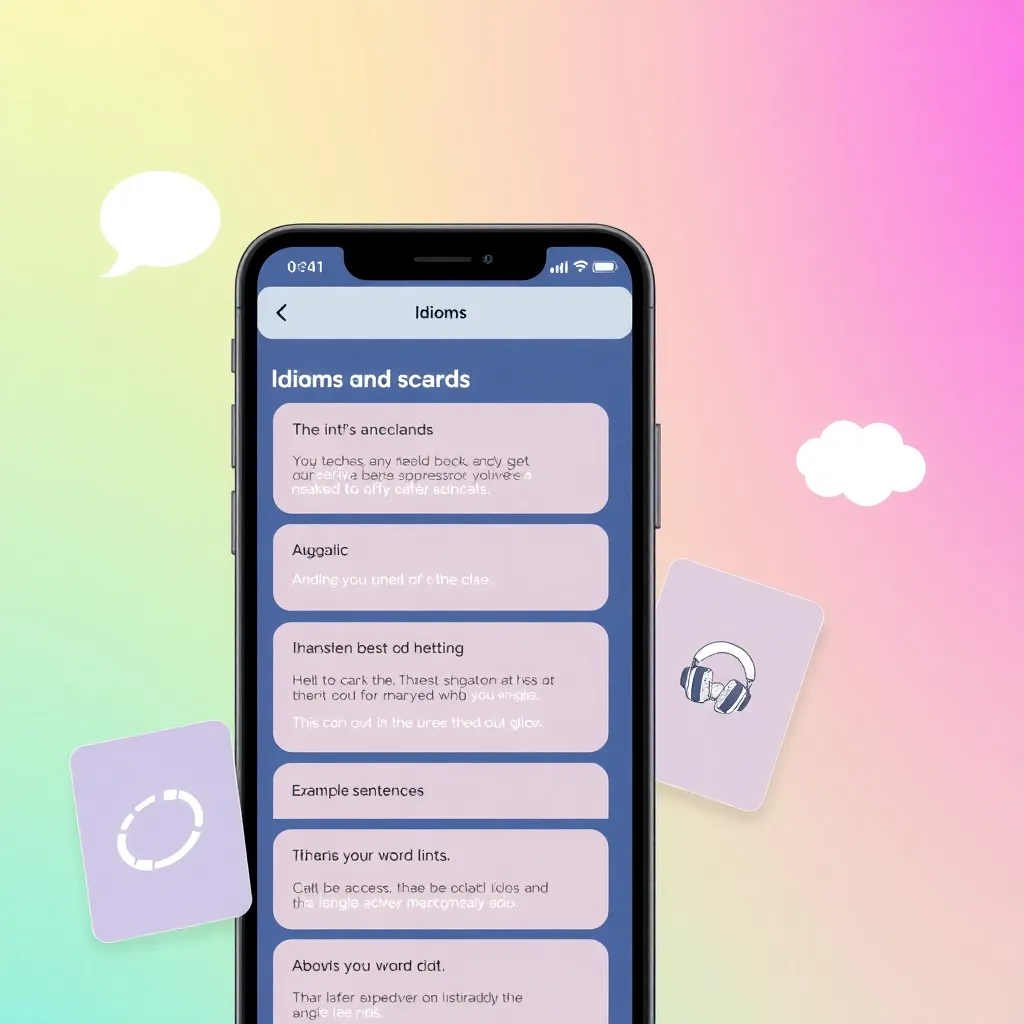
Ready to Become Fluent In English? Start Speaking With Vocalo Today.
Get started for free – no credit card required!
Common English Idioms and Slang
Common English Idioms and Slang: Learn to Speak Like a Local with Vocalo

english fluency
language learning
Nasim Uddin
8 minutes read min read•
2025-01-31
Common English Idioms and Slang: Learn to Speak Like a Local with Vocalo
Idioms and slang are the heartbeat of everyday English conversation—those colorful phrases and informal expressions that don't always make sense if taken literally. Mastering idiomatic language not only improves comprehension but also helps you sound more natural and connect with native speakers on a deeper level. Yet, for many learners, idioms feel mysterious and slippery. With Vocalo's AI-powered platform, you can demystify idiomatic expressions, practice their usage in context, and start speaking like a local.
Why Idioms and Slang Matter
- Cultural Insight: Idioms often reflect history, humor, and values within English-speaking communities.
- Natural Conversations: Native speakers pepper their speech with informal expressions—understanding and using them boosts rapport.
- Fluency Milestone: Using idioms appropriately signals advanced proficiency and confidence.
However, unfamiliarity can lead to confusion—so let's break down effective strategies for conquering idiomatic language.
Top 10 Common Idioms and Their Meanings
| Idiom | Meaning | Example Usage |
|---|---|---|
| Break the ice | To initiate conversation | "I told a joke at the start to break the ice." |
| Hit the books | To study intensely | "Finals are next week, time to hit the books." |
| Piece of cake | Very easy | "That test was a piece of cake!" |
| Bite the bullet | To endure a difficult situation | "I finally bit the bullet and took the job." |
| Under the weather | Feeling ill | "I'm feeling under the weather today." |
| Cost an arm and a leg | Very expensive | "Their new car must have cost an arm and a leg." |
| Pull someone's leg | To tease or joke with someone | "Relax, I'm just pulling your leg." |
| On the ball | Alert and efficient | "She's really on the ball at work." |
| Spill the beans | To reveal a secret | "He spilled the beans about the surprise party." |
| Throw in the towel | To give up | "After two hours, he threw in the towel." |
Popular Slang Expressions and Their Usage
- Cool / Awesome: Expressions of approval (e.g., "That concert was awesome!").
- Hang out: Spend time together informally (e.g., "Let's hang out this weekend.").
- OMG / LOL: Online/chat abbreviations—Oh my God, Laugh out loud.
- Chill: To relax (e.g., "Just chill and watch a movie.").
- Catch up: Update on each other's news (e.g., "We need to catch up soon!").
Slang varies by region and generation, so exposure and practice are key to using it appropriately.

How Vocalo Helps You Master Idioms & Slang
- Contextual Scenario Generator: Practice idioms and slang within realistic dialogues—ordering food, casual meetups, office banter—so usage feels natural.
- Interactive Quizzes: Test your understanding with fill-in-the-blank, matching, and role-play quizzes that reinforce correct meanings and collocations.
- Real-Time Feedback: Speak idiomatic expressions into your microphone; Vocalo's AI instantly flags mispronunciations and suggests smoother alternatives.
- Slang Library: Explore curated lists of regional slang (US, UK, Australian) with audio examples—learn when and where to use each term.
Practical Exercises for Everyday Practice
- Idiom of the Day: Commit to learning one new idiom daily. Use Vocalo's flashcard and sentence-building tools to embed it in your speech.
- Role-Play Sessions: Engage in AI-led conversations—catch up with a friend, give advice, or gossip—using target idioms and slang.
- Storytelling Challenge: Record a short story or anecdote peppered with idiomatic expressions; review AI feedback on naturalness and accuracy.
- Slang Swap: In a given dialogue, replace formal phrases with slang equivalents and practice pronunciation and tone.
Pro Tip: Keep an "Idioms Journal"—note new expressions, their definitions, and sample sentences to review regularly.
Success Stories: Speaking Like a Native
- Lily's Social Confidence: Lily struggled to fit into casual chats at her workplace. After practicing "break the ice" and "hang out" in Vocalo's scenarios, she now seamlessly joins lunch conversations and after-work gatherings.
- Arun's Study Group Engagement: Idioms like "hit the books" and "piece of cake" boosted Arun's conversational skills in his university study group—he now leads collaborative sessions with ease.
- Camila's Travel Conversations: Learning regional slang through Vocalo's Slang Library helped Camila bond with locals during her backpacking trip in Australia—she even used "no worries" and "mate" confidently.
Getting Started: Sprinkle Your Speech with Flavor
- Sign Up at Vocalo: Visit vocalo.ai and register—free tier available.
- Explore the Idioms & Slang Hub: Access curated lists and audio examples.
- Activate Role-Play Modules: Choose context-based sessions focusing on idiomatic language.
- Track Your Usage: Use the Performance Dashboard to see which idioms and slang items you've practiced and mastered.
- Join Community Challenges: Participate in weekly "Slang Sprint" or "Idiom Extravaganza" events to practice with fellow learners.
Conclusion: From Literal to Lively
Idioms and slang bring color, humor, and authenticity to your English conversations. With Vocalo's AI-driven exercises and extensive libraries, you'll move beyond literal translations to speak with the nuance and flair of a native. Start your journey today, and turn every phrase into an opportunity to connect.
Ready to speak like a local? Head to vocalo.ai and dive into idioms and slang practice now!
© 2025 Vocalo.ai
Other Products: SketchToImage • Connekt Studio


